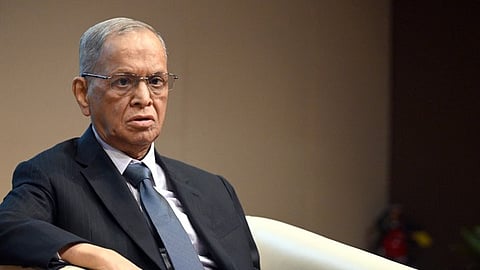

BENGALURU: Infosys co-founder N Narayana Murthy recently warned that failure to address climate change could lead to “mass migration” to cities like Bengaluru, Pune and Hyderabad. However, experts argue that the focus should shift from alarming predictions of mass migration to developing climate-resilient cities with actionable plans.
Experts emphasise that all major Indian cities face similar challenges at different levels of severity. With no other place to escape to, experts say we must tackle these issues head-on in their own cities. The opportunities are here, and so should the solutions.
Harish Bijoor, brand guru and founder of Harish Bijoor Consults Inclusive, said that addressing the impact of climate change requires a two-fold approach, with efforts ensuring that people can continue to live comfortably in their local terrains.
“This means prioritizing the development of infrastructure in smaller towns, villages and climate-vulnerable areas. Hinterlands and regions facing harsh climate conditions must be identified, marked and equipped with necessary resources to mitigate the effects of climate change,” Bijoor said, adding that planning and investment in these areas are crucial to prevent mass migration.
Megacities like Bengaluru, Pune and Hyderabad need to prepare for the inevitable influx of migrants seeking better opportunities, he stressed, highlighting that these cities are on the path to becoming “greater” versions of themselves, with far-flung areas increasingly becoming integral parts of urban life.
To effectively govern these expanding urban sprawls, municipal corporations must adapt. A single municipal corporation may no longer suffice — cities may need to be divided into multiple governing bodies, possibly five or seven, depending on their size and needs, he said.
Mass migration is already unfolding and intensifying each day, said Srinivas Alavilli, Programme Senior Fellow – Sustainable Cities and Transport at WRI India. In cities like Bengaluru, the most vulnerable migrants bear the brunt of climate change, facing severe challenges such as rising temperatures and frequent flooding, he said.
Alavilli, who is also co-founder of Citizens for Bengaluru, said Bengaluru has rolled out a Climate Action and Resilience Plan (BCAP) with a dedicated Climate Action Cell to drive its implementation. While some resident welfare associations, environmental groups, think tanks and corporate CSR teams have started working with the Climate Action Cell, progress is still in its early stages. Stronger action and wider collaboration are crucial to turn these plans into reality, he noted.
Urban planning expert Ravichandar V said climate change is an undeniable reality, and making cities resilient to its impacts is necessary. He noted that Bengaluru and other major urban hubs face similar challenges, such as flooding, water scarcity, traffic congestion and massive garbage landfills.
Finding solutions to these pressing problems requires collaboration among all key stakeholders, including business leaders, politicians and policy makers, he said.